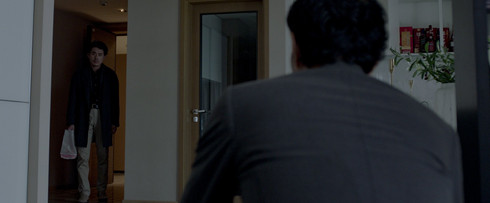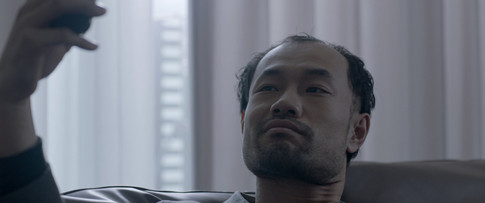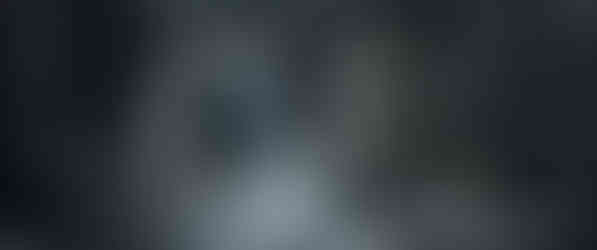The First Sieve is the Truth: An Interview with Molin Liu
- Feb 24, 2023
- 6 min read

Tell us about yourself. How did you become an artist?
I never see myself as an artist but as a recorder or spectator. Five years ago, I wandered in New York City with a film camera, looking for exciting but usually just ordinary moments. The journey usually begins from the east village and finishes in the central park. Now, I am doing the same thing but with the final draft.
There are two things that drive me to create films (or, as you said, become an artist). First of all, making an impact between individual values and social values by revealing events that were being deliberately suppressed. Realism cinema, as a mirror, can reflect the most authentic characteristic of a nation, an era, a government, and us. Schindler's List can pervasively resonate with people because it fictionally depicts a most authentic history, not vice versa. The vicissitude of the realism cinema will not merely determine the destiny of a specific film genre but the very center of society - what we believe, who we respect, and how we love.
On the other hand, I desire to make more films because the process is simply meaningless except for slowing down the time. As Bazin indicates, humans have always had an instinctive impulse for immortality since long ago. For instance, the custom of preserving a dead body as a mummy and maintaining our image with painting and photography. In a way, cinema actualized our longing by truthfully saving our appearance and ideology. It keeps our innocence, maturity, optimism, pessimism, complicatedness, sense of righteousness, and covetousness in our unique ways.

What was your first job in the art field?
My first job was as a photography assistant at Studio One Plus in Shanghai. I can still vividly recall the first question my mentor photographer asked me - how to light an object in a room so that it has no shadow? Of course, due to my lack of experience, I did not know the correct answer: to aim all the lights at the white walls, thus indirectly illuminating the object. That productive and fun summer in Shanghai is now constantly assisting my visual language development. It was also when I gradually gave up my addiction to perfect compositing in exchange for documenting the definitely-not-perfect life. I never stopped taking pictures despite the many changes in my life.
What makes you want to tell stories? In other words, what are the themes/issues you want to incorporate into your work?
The First Sieve is the Truth is my first attempt at making a sociological and political short film. It tells a story about a marginal social fact that could never be exposed to the world through a story between the head of the Bureau of Press and a thief. The script only contains a few pages, but it took me nearly six months to finalize the outline. The heart of this story involves censorship, which is regarded as an especially sensitive subject in China. The rigid censorship regulation has left the creators baffled and disappointed, causing the Chinese film industry to become less diverse. I also attempted to show humanity's hypocritical traits with some of the most representative figures in our society.
Please tell us about your vision and your method of approaching a new project?
I have not yet found a concrete method to approach a new project other than when it simply feels right. But I always try to fictionally and politically recreate reality. If you think about it, man's body is merely a speck of dust in the universe that, technically, all our emotions, thoughts, and actions are inconsequential. Nonetheless, the film is also one of the few tools that can enlarge our insignificant life to a significant level, turning many negligible and meaningless moments into precious ones. Realism cinema may bore the audience since reality is sometimes tedious. Therefore, although I try to break the established narrative structure by reducing the drama and intensifying the authenticity, finding the balance between the two is still very challenging.
Who are your filmmaking influencers? What are the films that were influential for you?
I enjoy watching Ozu Yasujiro's films because of my affection for Japanese culture, "mono no aware," a Japanese term for the awareness of impermanence or transience of thing. Ozu makes the audience feel deeply about his character by being honest rather than manipulating us by showing exaggerated performances or melodrama, hence Ozu's famous restraint and his ceremonial motionless cinematography style. If the audiences are enormously moved at the end of his films, it is not because anyone has pushed the right buttons but because they have seen something that strikes them as truthful. An Autumn Afternoon might be insipid for some audiences, but only audiences who have experienced sophisticated and sometimes unmerciful life can appreciate the hidden value of the film. Likewise, Taiwanese film director Edward Yang's film, for instance, Yi Yi, does not have miracles or saviors. To me, his greatest accomplishment is recording life's ups and downs with no exaggeration, occasionally accompanied by some humor and satire. During the nearly 3-hour-long duration of watching Yi Yi, I was astounded so many times by Yang's unsentimental vision, almost like watching a news report from an irrelevant observer. Watching Ozu and Yang's films is like discreetly living someone else's entire life, and instead of my work, it is my life being influenced by their films.
For my work, I get inspired by watching Jiang Wen's films. Jiang appears to be a leftish filmmaker when he portrays the outstanding quality of the laboring people. But in the film Devils on the Doorstep, Jiang does not employ the context of the traditional left-wing praise of the working class but portrays the numbness, slavishness, and ignorance among the Chinese people from that era. From my perspective, Jiang unreservedly and sarcastically raises an enormous historical topic without interpretation, just like James Joyce compresses time into one day in Ulysses. Jiang's films could be offensive. However, It does not indicate Jiang's objection to particular events but his way of deconstructing human nature, society, and history. Jiang often points out the rules and laws which are derived from people living a collective life that covers the human's heterogeneous nature. Jiang opposes a substantially homogenous society. In Jiang's post-modern films, there is no universal moral truth and fixed human goals. Filmmakers usually fall into two categories - money-oriented business people and socially responsible advocates. Fortunately, Jiang found the balance and fell into both categories.
How do you think the industry is changing? How has COVID affected independent filmmaking/creation?
Some of the most apparent transformations the epidemic has caused in cinema are the production strategy, the audiences' viewing habits, and the market pattern. While such issues might change over time, the pandemic can undoubtedly trigger unique content. Since 2020, filmmakers have created original works based on the pandemic, an unprecedented new topic. However, what the pandemic can bring to the cinema is not just the pandemic itself but other recessive social issues it has catalyzed. For instance, the collapse of people's trust in the politician, the internecine sabotaging of people from the middle and lower classes, the unsound social welfare system, and the management's corruption. Tragedy will indeed nurture more courageous and epochal stories.

What advice would you give to aspiring artists? What are some of the things they must follow/avoid?
Be true to yourself.
Do you think films/stories can bring about a change in the world?
Yes and no. On the one hand, cinema is intrinsically political, no matter its representations. It possesses influential social purposes that can reveal the social crises lurking in the shadows and reflect the hopes and fears of ordinary people. Eventually, I want to portray magical realism that carries substantial political metaphors or revolutionary symbols while being humorous. Indeed, the interference of politics on film could be drastic, yet utterly separating themselves could form another extreme. Politics emanates from the masses, and so does the film. But without making the latter a mere puppet, we need to discover the balance between rational reasoning and sincere sentiment - we should make a film politically, not make a film about politics. On the other hand, cinema is also intrinsically refined and pure in that it does not need to denote anything else but itself. Cinema is an art form that exists for everyone. Thus, there is no definitive explanation of a good film or what a film should accomplish or change. It only varies according to your unique pursuit.
What do you think people like to watch these days? Has the pandemic changed people's taste?
Personally, I don't think the audience's taste in film will easily change because of the pandemic. But surely people start watching more films at home.
Please tell us about your upcoming projects.
Currently, I am working on the post-production of a ten minutes short film, Come Another Day. The film tells a story about a Chinese woman who lives in New York City alone and struggling to pay off her husband's smuggling fee. To me, it is meaningful and impartial to examine the topic of illegal immigration, especially from the perspective of an immigrant. Despite their race, residence duration, and identity's legitimacy, most immigrants have experienced heartbreaking conflicts and potentially life-threatening risks from people around them. People might also ascribe such social withdrawal to their conservative lifestyle. But really, would their home countries seem any less exotic if they went back there again? In this case, I am taking alienation as a thread of the story to relate to the essence of human nature. The woman can be devoted to prostituting herself to reunite with her husband but can also be relieved, ironically, when knowing about his husband's death. I try to portray the paradoxical human nature: sacrificing oneself for love is humanity's glory, yet striving for the benefit at the expense of others is merely an embedded human instinct. We need to accept our ugliness.













Comments